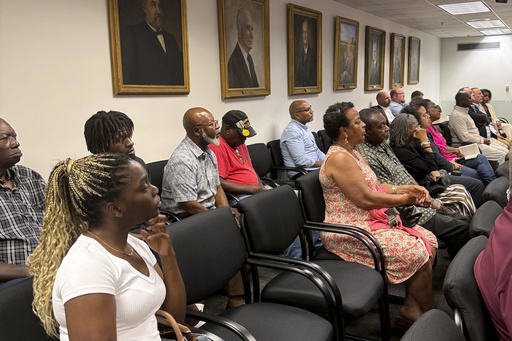ATLANTA — A recent ruling by a judge in Georgia has determined that a railroad can acquire land for a new track, despite opposition from local property owners. This decision marks a setback for a libertarian organization that aimed to challenge the use of eminent domain in such cases.
Fulton County Superior Court Judge Craig Schwall Sr. made the ruling on Tuesday, allowing the Sandersville Railroad to condemn a 200-foot wide strip of land over a distance of 4.5 miles. The rail line is intended to connect with a rock quarry, among other users. The landowners who oppose this decision had previously appealed a ruling from the Georgia Public Service Commission that permitted the land acquisition.
Although the judge has temporarily halted construction, the affected property owners plan to appeal the ruling to the Georgia Supreme Court. The outcome of this case carries significant implications, as private companies often rely on the ability to condemn land for railroads, pipelines, and electric transmission lines.
The Sandersville Railroad, which is owned by a prominent family in Georgia, aims to link the quarry to the CSX railroad in Sparta. Sparta is located approximately 85 miles southeast of Atlanta in one of Georgia’s economically disadvantaged counties and has a predominantly Black rural population. While the railroad has initiated agreements to purchase some of the eighteen parcels required, several property owners argue that taking their land would mar their treasured possessions, some of which have been in their families for generations.
“Every day that Sandersville doesn’t start building on our land is a win,” remarked Diane Smith, one of the affected landowners. She expressed her commitment to continue fighting until they are assured their land will not be taken from them.
In response, Brian Brodrick, legal counsel for the railroad, urged the opposing property owners to negotiate and highlighted the potential economic benefits the railroad could bring to Hancock County and the surrounding area. He reassured that the construction would minimally impact neighboring residents.
Opposition exists within the rural community regarding the quarry owned by Heidelberg Materials, a public firm from Germany. Concerns have been raised about the noise, dust, and increased truck traffic generated by the quarry. On the other hand, proponents argue that the new railroad could facilitate a relocation of the quarry operations away from homes and reduce truck traffic by utilizing trains instead. Moreover, plans for constructing berms to shield residents from disturbances have also been proposed.
Although railroads traditionally possess the power of eminent domain, the law in Georgia stipulates that land seizures must serve a “public use.” Critics of the project contend that it predominantly benefits the quarry itself. The Sandersville Railroad maintains that there are broader users, including a company at the quarry that mixes gravel and asphalt for road construction. Several other businesses also expressed interest in using the new line to access larger markets connected by CSX.
Judge Schwall affirmed that the railroad met the criteria for public use, stating that the rail line was essential for the functionality of Sandersville and would benefit the regional economy by providing a vital channel of trade in east central Georgia.
The Institute for Justice, which represents the opposing property owners, aimed to leverage this case to push back against eminent domain practices. The organization previously suffered a setback in a significant 2005 case in which it contested land seizures for economic development purposes. In his ruling, Judge Schwall referenced that historic case.
“We remain committed to demonstrating to the courts that a private railroad’s intent to establish a speculative new line solely for the advantage of certain companies does not constitute public use according to both U.S. and Georgia constitutional standards, as well as state eminent domain laws,” stated Bill Maurer, an attorney with the Institute for Justice.



